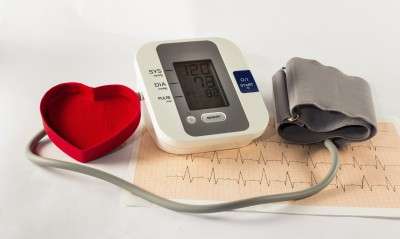New research asks whether vaccination can prevent heart attacks and strokes for those at risk

A major national Monash University collaboration is now testing whether a safe, one-off vaccination can help to reduce the risk of heart attacks and strokes.
The Australian Study for the Prevention through Immunisation of Cardiovascular Events (AUSPICE) is recruiting 6000 men and women aged 55 to 60 years across six centres in Newcastle, Gosford, Canberra, Melbourne, Adelaide and Perth to be part of this pioneering research.
The Melbourne study centre is based at the Centre for Cardiovascular Research and Education in Therapeutics (CCRET) in the School of Public Health and Preventive Medicine, Monash University. Principal Investigator Professor Andrew Tonkin, assisted by Dr Ingrid Hopper, will lead the study from Caulfield Hospital.
The study will formally test whether the existing pneumococcal vaccine can not only reduce invasive pneumococcal disease but also help to prevent heart attack and stroke.
Professor Tonkin said that studies suggest there may be a component of the adult pneumococcal vaccine that looks like oxidized LDL, the bad cholesterol that builds up in arteries of people with heart disease.
"The antibodies that are generated in response to the vaccine appear to bind to and reduce the build-up of cholesterol, thereby reducing vascular disease. The only way to explore this efficiently is through a randomised controlled trial," Professor Tonkin said.
"To our knowledge this the first and only trial registered in the world exploring this possibility."
Cardiovascular disease is still the number one killer in Australia, despite ongoing efforts in prevention and treatment.
"If shown to be effective, it would be relatively easy to incorporate changes into clinical practice because the pneumococcal vaccine is safe and has already been used in Australia for over 20 years in a different target group," Dr Hopper said.
Each trial centre is aiming to recruit 1000 participants, who are asked to attend a single clinic visit for less than one hour. People with at least two risk factors for heart disease – high blood pressure, high cholesterol, or overweight/obesity – will be randomised to receive either the active vaccine or a saline placebo.
Health record linkage will be used to determine the rates of heart attack and stroke in the treatment and control groups, four to five years after vaccination.
"This novel new study could dramatically improve the health outcomes for so many Australians affected by adverse cardiovascular health – we are asking anyone who receives an invitation for AUSPICE via mail to please take the time to consider participating and to complete the eligibility screening, either in hard copy or online," Professor Tonkin said.
Further information on the study can be found on the AUSPICE website.


















